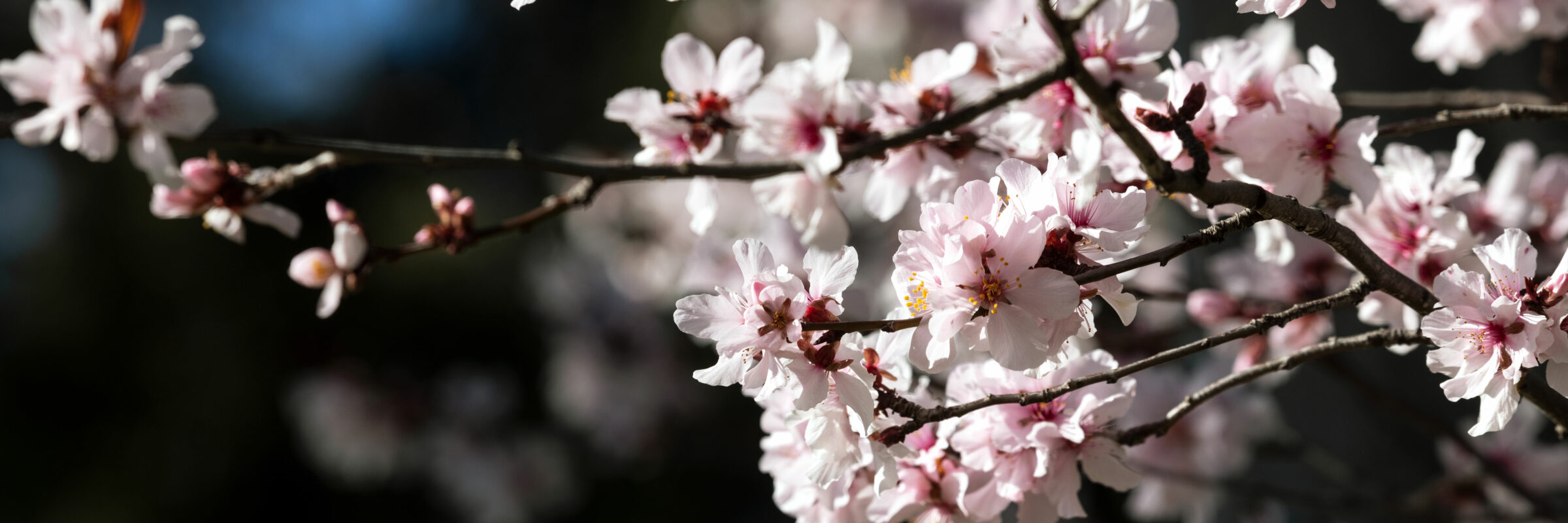The Name
Our wine takes its name from the original Battle of Bosworth, fought on Bosworth Field, Leicestershire, England in 1485. Here the last of the Plantagenet Kings, Richard the III, was slain by Henry Tudor, becoming the last king of England to die in battle. His death ended the War of the Roses.
The roots of our family’s battle were planted in the 1850s with the first Bosworth vineyard in McLaren Vale. Our modern day Battle of Bosworth saw us convert our vineyards to organic viticulture in 1995.
The White Boar (see inset) featured on Richard III’s battle standard, and was his personal device or badge. The Boar also features on the labels which go over the top of bottles of ‘White Boar’ and the Battle of Bosworth Chardonnay.
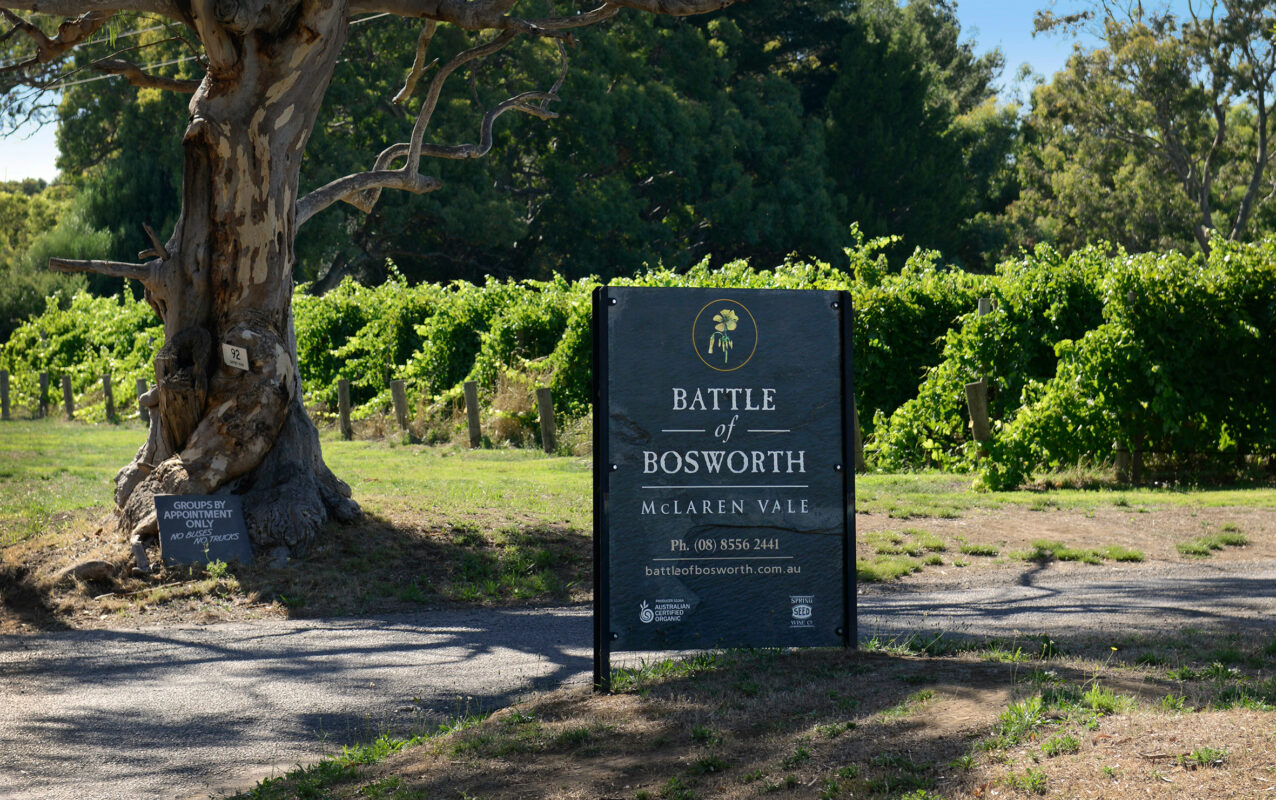
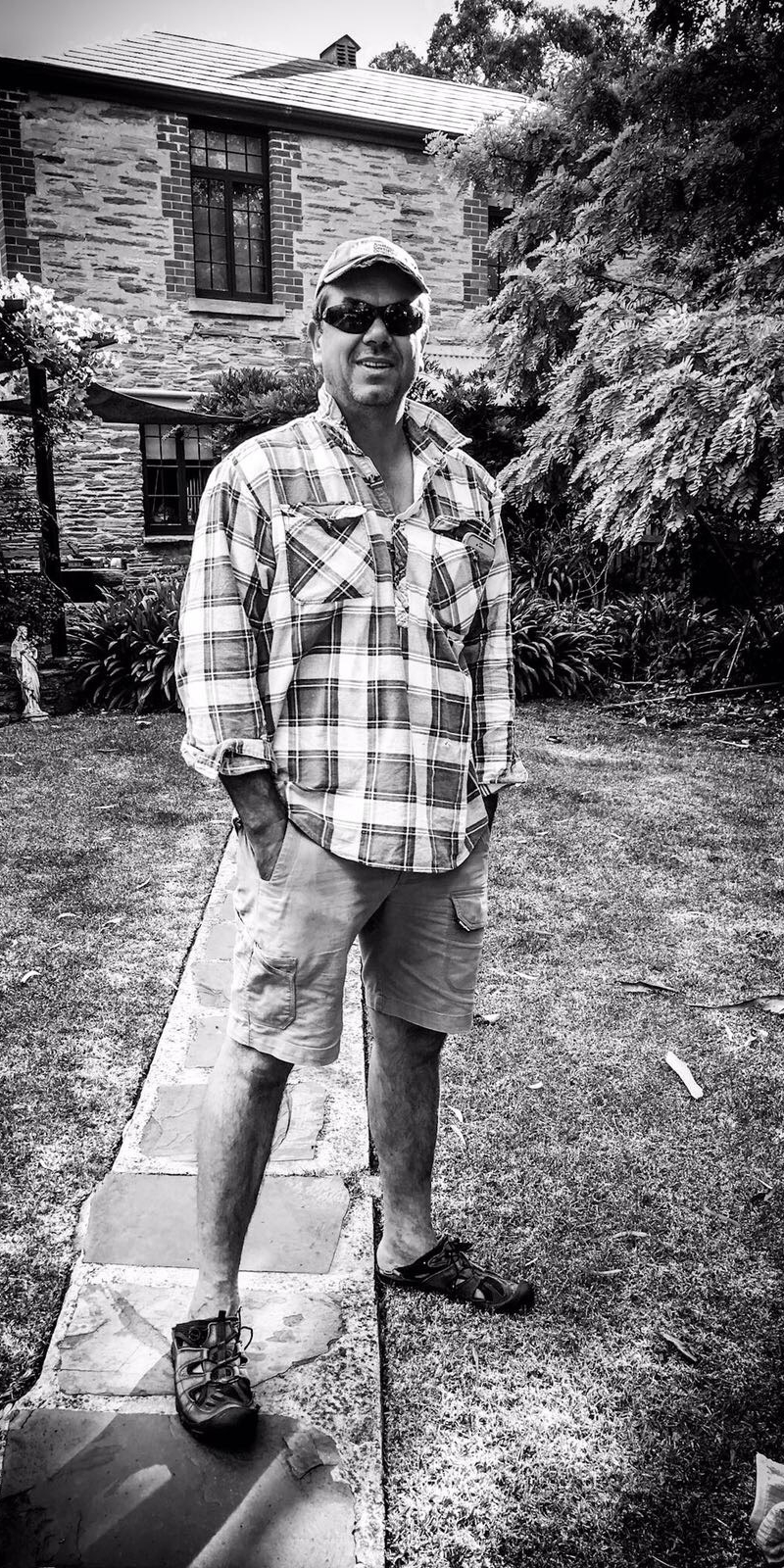
The People
Joch Bosworth
Owner and instigator of the Battle of Bosworth and Spring Seed Wines
Raised in the clean fresh air of McLaren Vale, Joch spent his formative years helping in the vineyard and pestering local marine life in the crystal waters off the St Gulf St Vincent, 7 km to the west of Edgehill Vineyard. No sea creatures were safe from the young Bosworth’s hunting and gathering tendencies, though the bivalves could breathe a sigh of relief once Joch had translated a couple of viewings of the movie ‘Jaws’ into real live terror of the deep. This restricted his fishing activities to what he could achieve from the boat.
Following successful study at Charles Sturt University in New South Wales in viticulture (Associate Diploma 1988-1990) Joch embarked on the quintessential vinous world tour. After spending a season working for Robert Mondavi in the Napa, he then went on to do a vintage or harvest in Oregon, at Willamette Valley Vineyards.
Returning home, Joch was drawn east of the border to Goona Warra, a small Victorian winery in the Sunbury wine region, where he worked for several years. After three years as resident viticulturist and winemaker (including some practice at making Grappa in the lab) Joch returned home to Edgehill Vineyard in 1995 to take over the reins from father and founder, Peter.
Joch’s commitment to organic principles in the vineyards began with an increasing sense of discomfort about using synthetic chemicals on his soils and at the same time, that using natural, old fashioned farming techniques was utterly feasible in a climate as benign as McLaren Vale’s.
Max Allen in his book, The Future Makers; Australian Wines for the 21st Century, describes Joch as one of the ‘most important organic winemakers in Australia’.
Including the 2003 Battle of Bosworth Shiraz in his annual hotlist of 100 Best Australian Wines, UK Wine journalist Matthew Jukes said that Joch is regarded by his peers as ‘an off the wall viticultural genius’. It might be worth talking to some of his peers to find out exactly what they meant by this statement, but as it stands, it’s a pleasing observation.
Joch was named McLaren Vale’s grape grower of the year at the annual McLaren Vale Grape Wine and Tourism Association’s (MVGWTA) Wine Industry Awards in September 2008. The award recognises best practise viticultural management in McLaren Vale, as well as commitment to innovation, environmental sustainability and grape growing excellence.
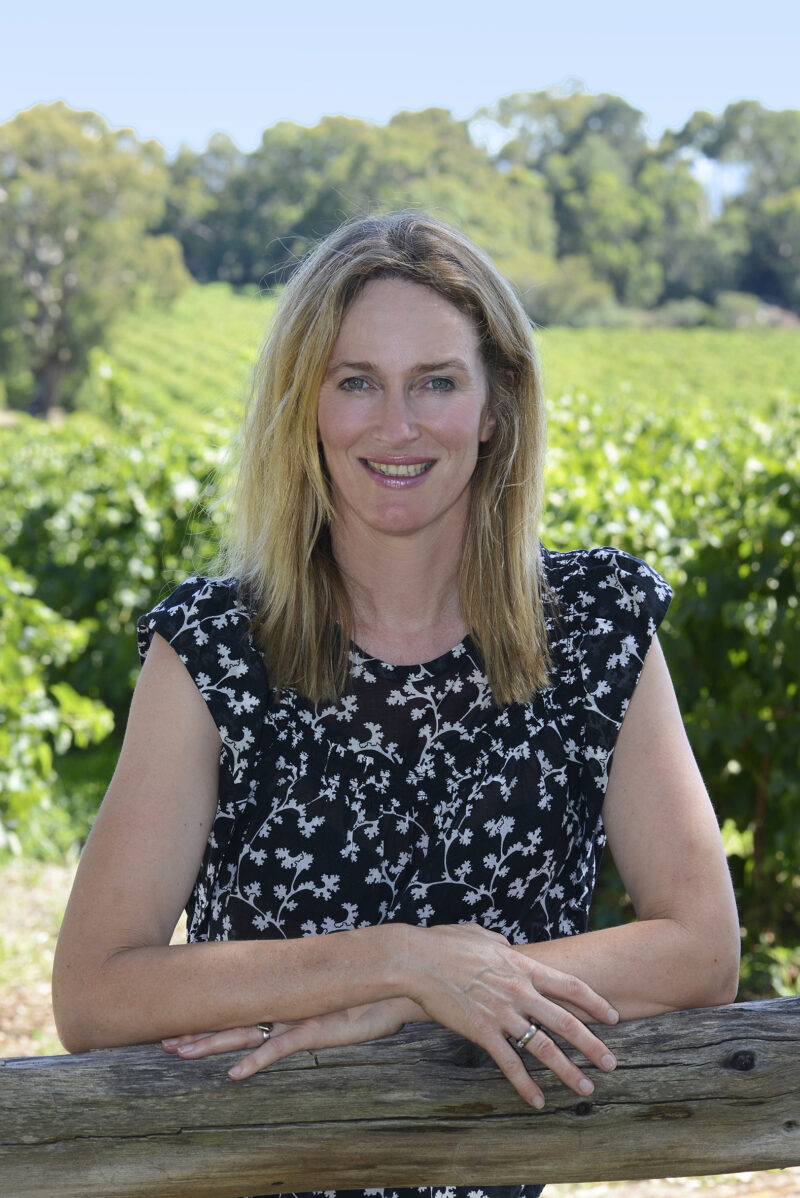
Louise Hemsley-Smith
Marketing and Sales Director
Louise landed in Australia on St Valentine’s Day 14th February 1997 fresh from the UK, with a personal tradition of lengthy and largely unimpressive university study and long vacation travel. She worked on her cousin’s vineyard in the Adelaide Hills, but found the bracing morning temperatures during grape picking a bit too reminiscent of home, so moved down to McLaren Vale.
Night study for a Masters in Marketing at the University of South Australia gave her time to make her early mistakes in wine marketing and sales at various McLaren Vale wineries (Tatachilla Winery, d’Arenberg and Penny’s Hill) during the day. Officially retiring from working for ‘the man’ in 2005 she went back to the Bosworth family vineyards to work for the Man – Joch Bosworth – where she took over all aspects of sales, marketing, administration etc. of their wine labels, as well as a sideline of looking after the next generation of Bosworths, Celia (vintage 2004) and Peggy (vintage 2007).
History
Located in Willunga, to the south of the McLaren Vale township, Edgehill Vineyard was established in the early 1970s by Peter and Anthea Bosworth. Willunga itself was settled in approximately 1837 and Bosworths have been growing grapes in the district on and off from the late 1850s. Son Joch Bosworth took over the management and day to day running of the vineyards in 1995, and set about converting the vineyards to certified organic viticulture from this time.
Traditionally a region of mixed agriculture from the earliest pioneer days, Willunga grew wheat, sheep, stone fruits and barley, as well as dairy cattle and almonds. Almonds were an important part of the local economy in the 1950s and 1960s, but Willunga was unable to compete with the Riverland region’s unrestricted access to water for irrigation and cheap land for almond growing, and the industry fell into decline. Many of the commercial almond groves became derelict as a result, and Edgehill Vineyard was established on one such property.
Battle of Bosworth Wines was established in 2001 by Joch and partner Louise Hemsley-Smith and wines are made from vines that were planted in the early 1970’s by Joch’s parents.
This constant spirit of experimentation in the vineyard and winery, along with traditional vinification and natural minimal processing, combined with organic and sustainable viticulture allows us to capture the purity, integrity, texture and flavour of the vineyard in our wines.
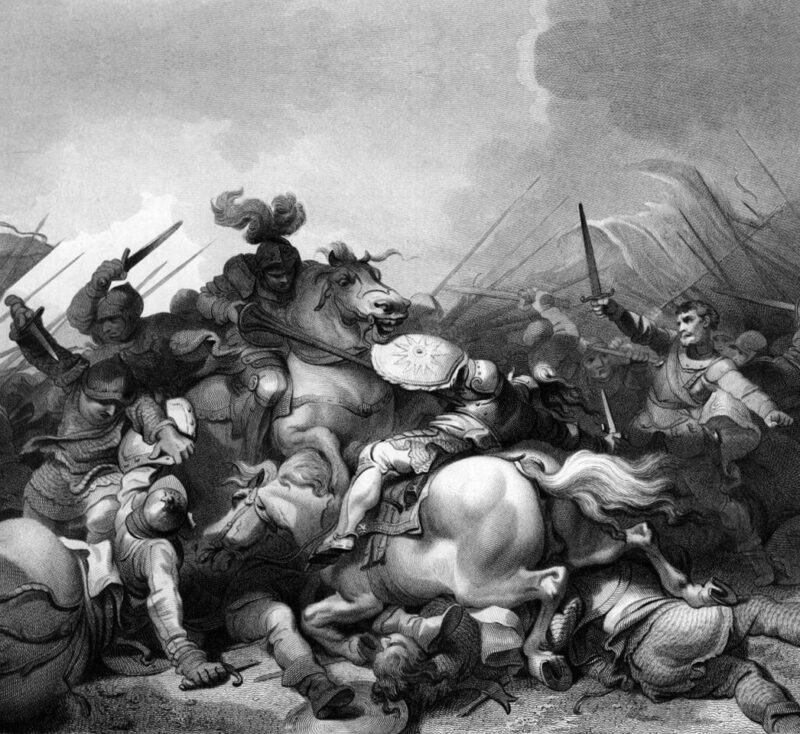
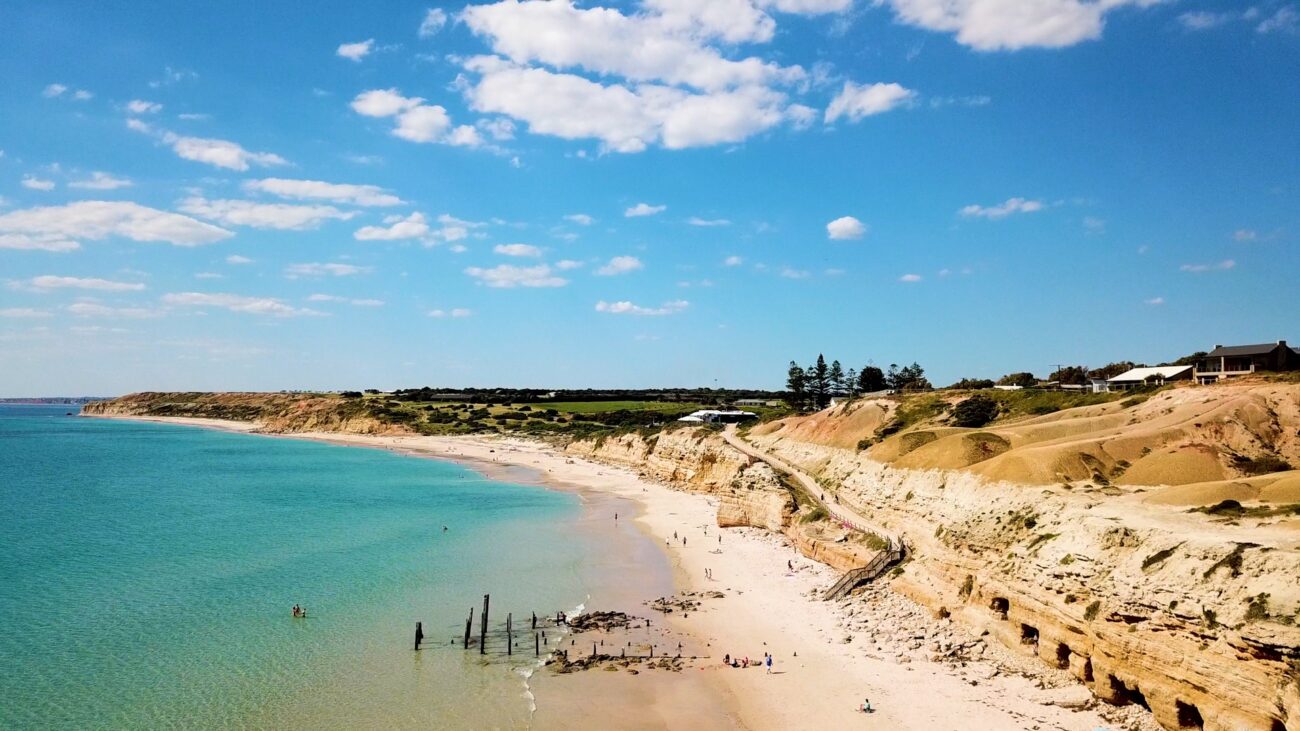
McLaren Vale
Situated in the foothills of the Southern Mount Lofty Ranges and bound to the west by the pristine waters of the Gulf St Vincent, Battle of Bosworth is in the heart of the McLaren Vale wine region.
The region is approximately 37km south of Adelaide, the capital of South Australia. McLaren Vale is almost unique in being situated so close to the sea (and some of the finest beaches in Australia) and a significant sized population centre. McLaren Vale is the home of the small winemaker, as well as approximately 300 independent grape growers who tend some 5,000 hectares (12,000 acres) of vines.
McLaren Vale was one of the earliest regions to be planted to vines in South Australia, with first recorded plantings in 1838 by John Reynell in Reynella, to the south of Adelaide.
McLaren Vale has what is best described as a Mediterranean climate; winter dominant rainfall, low relative humidity and high relative evaporation. Rain during vintage and frosts in spring are both rare. Our vines benefit from cooling gully winds in summer and the proximity of the ocean moderates winter temperatures and sea breezes help relieve hot summer afternoons. McLaren Vale is rightly considered one of the most consistent premium wine growing regions in Australia.
For more information about McLaren Vale; its wineries, accommodation, places to eat etc please visit www.mclarenvale.info


